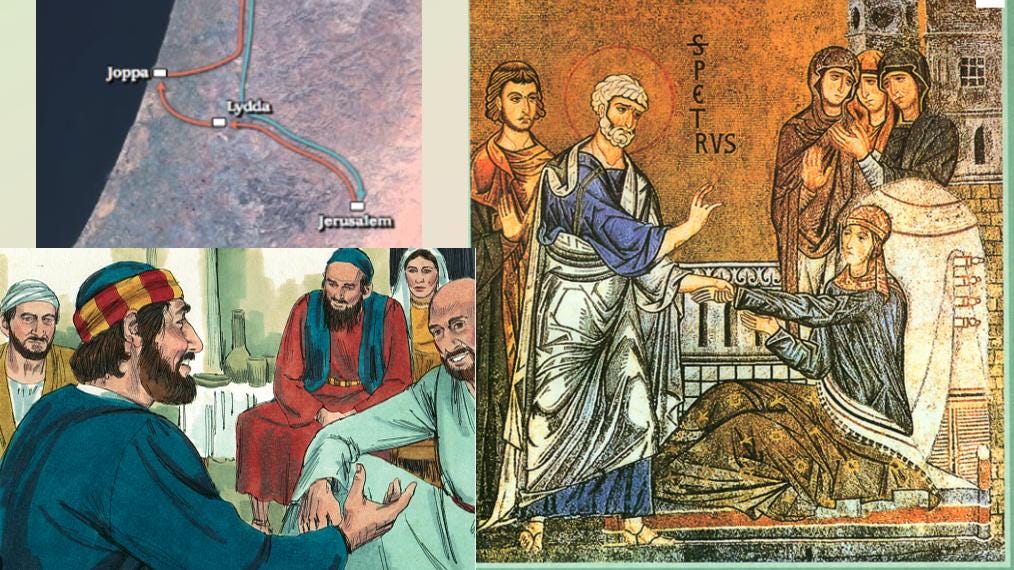Expressions of Gratitude: Miracles, Eucharist, and Sacrificial Love.
April 20, 2024 - Saturday of the Third Week of Easter
Acts 9:31-42; Ps 116:12-13, 14-15, 16-17; Jn 6:60-69
Psalm 116 belongs to a group of hymns known as the Hallel (Psalms 113-118), a collection associated with the term hallelujah - “praise the Lord”. These hymns were sung during the celebration of the Passover as an expression of gratitude for deliverance from slavery in Egypt. The question that the psalmist asks in today’s psalm is worth pondering: “How shall I repay the LORD for all the good he has done for me?” (Psalm 116:12). So, how should Aeneas and Tabitha repay the Lord for the miracles that He brought into their lives through the ministry of Saint Peter?
The first reading continues the story of the growth of the apostolic Church. Peter is in the cities of Lydda and Joppa - located on the Mediterranean coastal plain - where he healed a paralyzed man, Aeneas, and brought back to life a dead woman, Tabitha. Both healings led many in those cities to believe in the Lord. Throughout the Acts of the Apostles, Saint Luke indicates that miraculous healings served as powerful testimonies to the truth of the Gospel and facilitated the spread of Christianity. Nothing has changed since then. Signs and wonders validate the message of salvation and draw people to faith in Jesus Christ.
We do not know how Aeneas and Tabitha repaid the Lord for all the good He did in their lives, but the psalmist suggests an answer: "The cup of salvation I will take up, and I will call upon the name of the LORD" (Psalm 116:13). We associate “the cup of salvation” (Psalm 116:13) with the Eucharist, the topic of Jesus' discourse in the synagogue of Capernaum that we have been listening to for a few days in the Gospel. Jesus is the Bread of Life who gives life to the world. But this statement and its subsequent explanation create a crisis among Jesus' listeners: "This saying is hard; who can accept it?" (John 6:60).
Our catechism explains that at the center of the Eucharist are “the bread and wine that, by the words of Christ and the invocation of the Holy Spirit, become Christ's Body and Blood“ (CCC, 1333). Jesus Christ died for our sins and the sins of the world (1 John 2:2): “This bread is my flesh, which I will give for the life of the world” (John 6:51). The Eucharist is “the Holy Sacrifice because it makes present the one sacrifice of Christ the Savior” (CCC, 1330). But many of Christ's disciples could not accept it and left Him. Only the Twelve remained because they believed that Jesus has "the words of eternal life" and He is "the Holy One of God" (John 6:68-69).
So, how can we express our gratitude to the Lord for willingly sacrificing His life for our salvation? How can we thank Him for setting us free from the power of sin and death and adopting us as His beloved children? How can we be grateful for the most precious gift of all, the gift of the Holy Spirit that transforms us into God's living temple? Let us come to the Eucharist with hearts overflowing with gratitude, recognizing it as the ultimate expression of Christ's sacrificial love for us. As we partake in this sacred sacrament, let us not only receive but also give, emulating Jesus' example of selfless service and compassion towards others.




